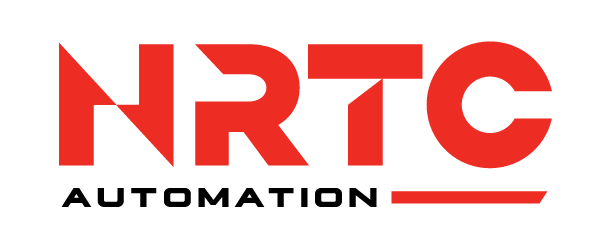NRTC AUTOMATION BLOG | INDUSTRIAL ROBOTS AND AUTOMATION
4 (Good) Reasons to Learn Programming
Why should you learn programming? Well, programming has lots of different applications in many industries, from manufacturing to design. As more processes become automated and move to digital platforms, knowing how to code is an important skill that will boost your resume and ease the transition into a more computerized world.
Learn more about the reasons you should learn how to program below!
Programming seems like a buzzword these days: everyone and their college roommate are learning how to code.
Why should you learn programming? Well, programming has lots of different applications in many industries, from manufacturing to design. As more processes become automated and move to digital platforms, knowing how to code is an important skill that will boost your resume and ease the transition into a more computerized world.
Learn more about the reasons you should learn how to program below!
Reasons to learn programming
1. EASY ACCESS TO LEARNING
Programming is easier to learn now more than ever. With the proliferation of massive open online courses (MOOCs), how-to coding books, free videos, courses offered by universities for credits, and more, coding is available to the public to learn at their own pace.
Some people need a schedule to learn and keep them accountable. An online course would be the best option as it provides a week-by-week program with quizzes and tests. Many online courses are free or are available for a minimal charge. Others, like this Harvard Python programming course for AI on edX, offers a professional certificate for completing the course for a slightly higher price tag. These certificates can be useful for job interviews and displayed on LinkedIn.
If you want to learn to program but don’t want to commit to a full course, you can watch free videos on YouTube, the Khan Academy app, or any other platform that offers free tutorials. This requires more self-discipline, but it is free and flexible to your schedule.
2. CODING SKILLS ARE VALUED IN INDUSTRIES ACROSS THE BOARD
Because of the advancement of technology, all kinds of industries need programming in order to carry out essential processes. In 2015, there were over 7 million job openings that required programming as a skill, so clearly having programming knowledge would make you an asset.
For example, healthcare needs programmers to develop and maintain their large systems of data to avoid breaches and make it easy to navigate for those who need to access the information. In graphic design, coding knowledge allows designers to present ideas and visualizations without relying on a program like Photoshop to do the coding for them.
Other industries that need programming skills include marketing, business, finance, manufacturing, and of course, technology. By committing to learn programming, you make yourself more valuable to all these industries and more as automation becomes more established.
3. GETTING THE PROGRAMMER’S MINDSET
The programmer’s mindset is treated as some sort of mythical worldview, but it just comes down to a few traits that you can cultivate by learning programming. They include:
A willingness to learn—continuously
Flexibility to change course at any moment
Perseverance to complete a project or solve a problem
Creative problem-solving skills
A keen attention to detail
Breaking down complex ideas into simpler terms
These are the major qualities that contribute to a programmer’s success, but there are even more traits that make up the programmer’s mindset.
By studying code, you can develop these traits, which enhances more than just your coding skills. The programmer’s mindset will improve your personal and professional life as you apply these traits to your daily routines.
4. KEEPING UP WITH AUTOMATION
As we mentioned before, automation is becoming more prevalent in industries across the board. Every day, computers are being built with more intelligent applications and algorithms. Robots are more agile and sensitive than ever before, and they are even making ripples in surgical rooms and nursing homes.
It’s important to note that over 95% of jobs will not be taken by robots, but they will be changed by the development of technology. For example, both administrative assistants and chief executives will be relieved of monotonous tasks like compiling reports with the advent of artificial intelligence. However, their ability to think creatively, connect with other people, and make important decisions based on both facts and opinions will keep them in the workforce.
While automation isn’t anything to fear—in fact, robots will keep people safe from dangerous jobs and provide space for more creative and fulfilling work—it is smart to stay ahead of the curve and learn to work with computers and robots rather than against them.
By learning to code now, you can keep up with the rapid advancements in automation and learn how to use robots and computers for your benefit.
Programming in Robotics
Programming is the foundation of robotics. It’s what robots follow in order to carry out every command, from welding materials with torches to simply picking up and moving objects. As code becomes more and more refined, along with better technology and parts, robots will be able to assist with more parts of the production process.
NEED A PROGRAMMER FOR YOUR ROBOTS?
Check out NRTC Automation’s robotic engineering services! Our experienced technicians are experts at solving automation issues ranging from simple fixes to advanced diagnostics. We’ll work directly with your team to understand the problem and provide the fastest turnaround possible. Contact NRTC Automation today for more information on how we can assist your company on your way to automation.

